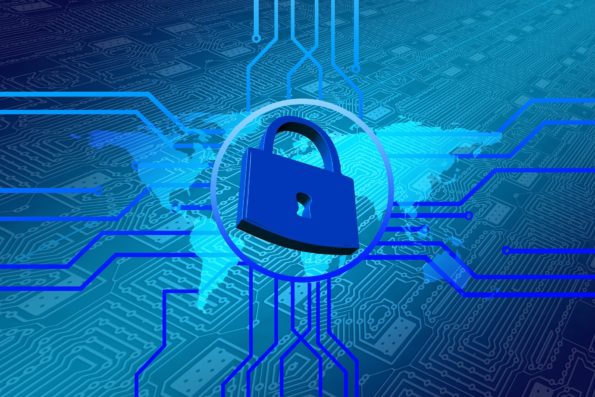In 2014, YouTuber Coby Persin conducted an experiment in which he created a FaceBook account of a 15 year old, in which he lured multiple girls around the same age to meet him, with the parents knowing of all the interactions. He succeeded with relative success, and posted the video on YouTube, showing how easy it was to lure people into possible traps in the real world. Had it been someone else, with much darker intentions, the girls could have gone missing, with only organizations like the NSA could track, using their GPS location, find out the Facebook posts and trace the perpetrator, but, at the cost of personal privacy on the internet. This begs the question, do sacrifice security or privacy?
Security

Online security was not really touched upon until the 90s when malware was starting to pose more of a problem to online users around the world. Online security allows one to stay safe from malicious hackers, virus, and other types of online abuse to destroy or steal information from unsuspecting people. While much of what we know about cyber security is done by autonomous programs, another big part of cyber security is reporting threats to government agencies. In November 30, 2011, a bill was introduced, called CISPA, the Cyber Intelligence Sharing and Protection Act, which would allow companies to share information with the government, to help mitigate the risks of cyber threats, such as hackers, viruses, and other malware. This act would allow the government to focus on these risks, giving them the opportunity to minimize these risks, making the internet safer for most people. In October 27, 2015, a similar bill was passed, called the Cyber Security Information Act, or CISA for short, which would make it easier for companies to share this information with the government. These two bills are were favored by companies, such as Microsoft, FaceBook, AT&T, and IBM, which saw these two bills as an straightforward and simple way to reduce the risks of cyber threats. The main goal of these two bills were to spread the possible cybersecurity threat information to different agencies, and police, who could focus on minimizing these risks to threats neutralized. Other bills such as the State and Local Cyber Protection Act worked in the other direction, where state and local governments would ask for assistance with cyber security, requiring the Department of Homeland Security’s National Cybersecurity and Communications Integration Center (NCCIC) to aid those who requested their support for cybersecurity, and make sure that state and local governments were aware of these resources, to ensure safer internet traffic. Online security also impacts other larger scale electronics, such as automated devices, power grids, and other devices that would have a large impact should they be attacked by hackers and malware.
Privacy

While these bills were created with the intention of making the internet safer, they also had major flaws that many found unacceptable. The American Civil Liberties Union argues that the bill would introduce a loophole against all of the existing digital privacy laws, by giving companies the liberty to share private information with the government, with essentially no restrictions. The internet advocacy group the Electronic Frontier Foundation argues that these two laws override laws such as the Electronic Communications Privacy Act, which made the requirements for listening on things such as phone calls stricter, with greater requirements, the Stored Communications Act, which makes it a crime to have unauthorized access to stored communication, which was passed due to the 4th amendment’s loose coverage of this. Another flaw that many vocalize, is that the government does not have any restrictions to what they use that data for, putting the privacy of millions at risk. This argument is also backed by how CISA makes it much easier for companies to share private information with the government, allowing these companies to accumulate data that would otherwise be illegal to accumulate without a warrant, making online traffic much more transparent, making privacy almost negligible. A common example of a company sharing your data with other companies are the ads you see when you browse the internet. Often times when you search up a certain thing on Amazon and other online shopping sites, ads for related items are shown. While this may not be very severe, the amount of information that can be pulled from someone’s browsing data legally can be much more sensitive information. Another issue that people find with these new cybersecurity bills, are that even though they decrease privacy, they still do not do much to help with cybersecurity, and give the government information that they can give to other agencies, which can be used for their own agendas, something many find questionable, such as the media reform group Free Press.
Conclusion
So long as people have access to the internet, there will be those who try to take advantage of that. Some form of abuse will always be present, but whether we will sacrifice our privacy for safety, or enjoy more privacy from prying eyes, at the risk of hackers and malware will always be in question. While the average person may not need much privacy, there are those who hold sensitive information that would be better kept from spreading around, but risks such as hackers and malware are prone to affecting those not prepared for attacks.
—-
Featured image from Pixabay
